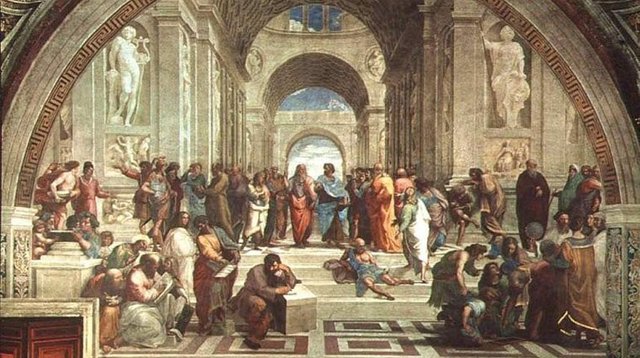Ancient philosophy. Life and creativity of Socrates. /part 4/
The existence of a non-ideal in the moral consciousness of man and the consciousness of the common unwritten moral laws are the first testimony of this supreme Reason. Apart from his own soul, Socrates finds traces of his actions in general harmony, in the orderly cosmic order and in the proper structure of organisms. This way begins the theological proof of God's being. Existing expedience in nature speaks of the existence of an unconditionally reasonable beginning.
The phenomena in which internal expedience is so obvious that they can not be explained as a result of blind chance or mechanistic principle are the strongest proof that they are the work of Divine Reason. Such phenomena are sensory organs, instinct for self-preservation, common thirst for life, parental instinct, nutrition, consciousness, order and beauty of the whole universe, etc. The theological explanation given by Socrates is not only true but has a very favorable influence on the development of philosophical thought. The term "theology" originates from ancient Greek philosophy, from the Plato disciple of Socrates, and expresses in the then critical, religious-philosophical thinking the path from the myth to the Logos - the way to reveal the truth of the Divine. Aristotle described it as "theologic philosophia such as "episteme", meaning a philosophical, metaphysical, and imaginative study of the existence as being, and is the main subject of so-called "first philosophy" as "the doctrine of the divine." "Sophisticated sciences are preferable to all others, and the doctrine of the Divine has the greatest advantage over all other sciences."
In Socrates, a basic postulate - the top of his philosophy - is his understanding of God. The belief in reason, in the unconditional supreme rational norm, has its definite justification and expression in the recognition of the Highest Reason - God. Socrates's ethics and logic, however, make clear the demands of rational knowledge and behavior. Often, Socrates' entire significance lies in the establishment of normative principles, but the highest of his principles, the ideal of which he has inspired and served is the ideal of perfect Reason. On this occasion, Xenophon is also spoken. Socrates was not in a hurry to tell his followers the formal ability of speech, action, or any art. Above all, he considers it necessary to introduce "wisdom" into them.He was convinced that those who possess these abilities without wisdom are the most unfair and willing to do evil. That is why, above all, he seeks to make his followers wise "about the gods". Indeed, Xenophont gives only two samples of Socrates' theological reasoning. He also refers to persons who have recorded his thoughts from some other witnesses.
